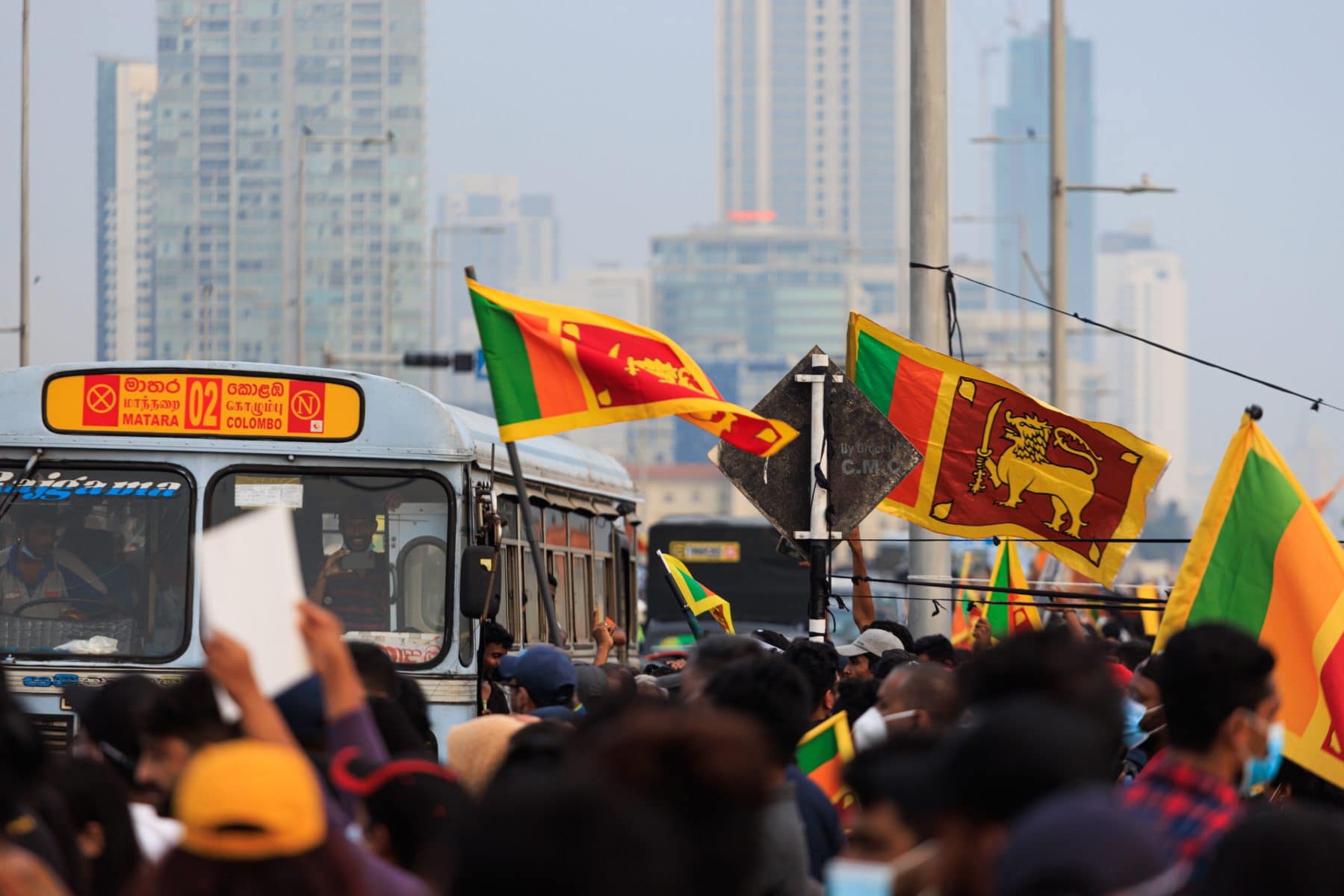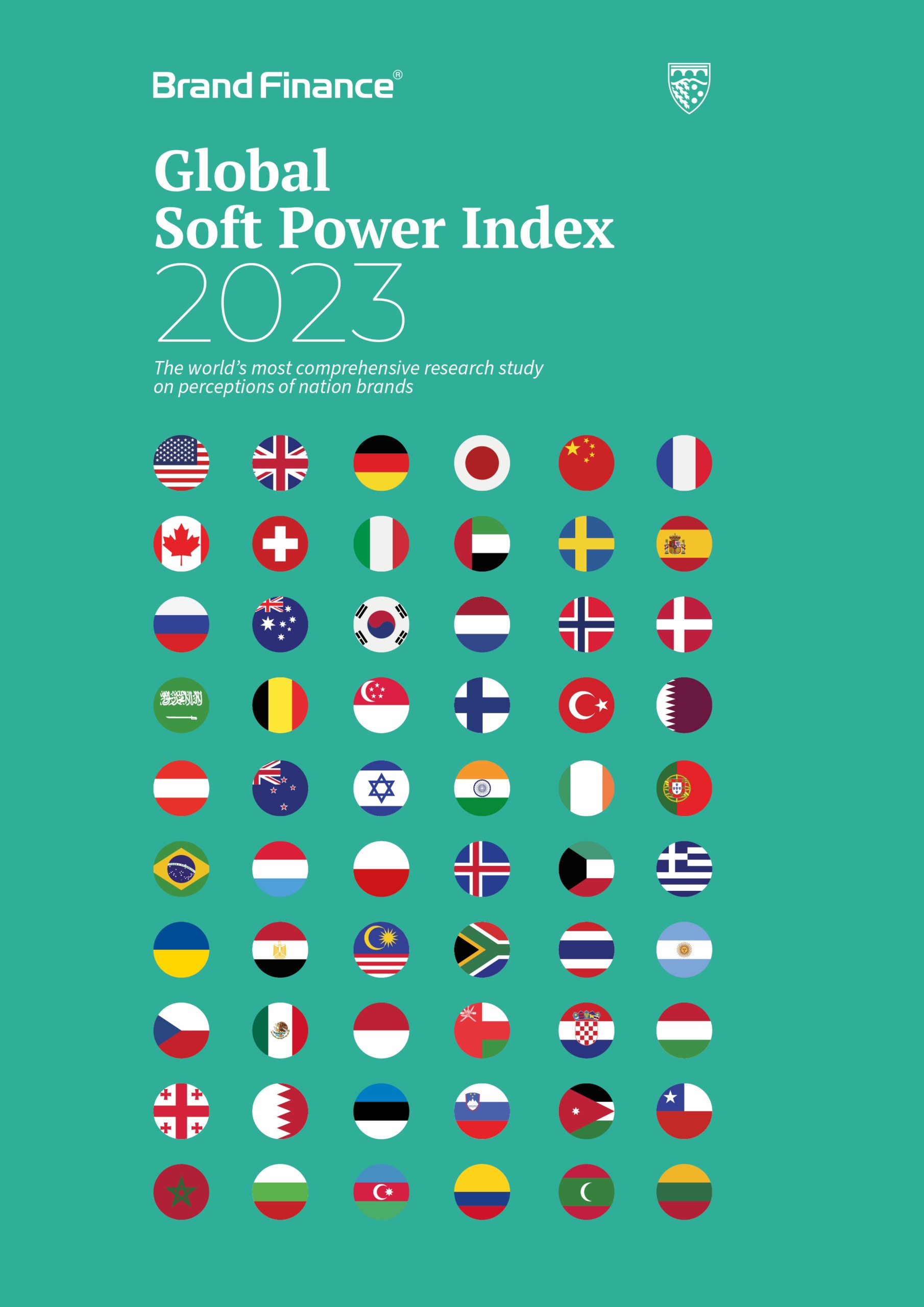This article was originally published in the Global Soft Power Index 2023.
Sri Lanka has been ranked 115th in the Brand Finance Global Soft Power Index 2023, a significant decline since its last ranking at 73. Faced with the fallout of an economic crisis, the island nation is committed to leveraging its resources and building its Soft Power score going forward.
Nuwan Gamage, President of the Sri Lanka Institute of Marketing, interviews on the subject below.
To read more about Sri Lankan Soft Power and the challenges it faces, see the insight by Ruchi Gunewardene, Managing Director of Brand Finance Sri Lanka.
Interview with Sri Lanka Institute of Marketing

President,
Sri Lanka Institute
of Marketing
Sri Lanka’s economic crisis has created unprecedented challenges for the country, impacting global perceptions towards the nation. What are your goals for the next decade in terms of building up Sri Lanka as a nation brand?
As the national body for marketing, it is the sincere belief of the Sri Lanka Institute of Marketing that nation branding is a powerful answer to the current economic crisis. It is true that our reputation as a nation has suffered during that past few decades, but we also vehemently believe that we have the resources to rectify that with a powerful nation branding strategy which goes beyond a marketing campaign. We have seen numerous, extremely diverse tourism campaigns that Sri Lanka has launched. Our approach to nation branding is different to that fundamentally, in it being policy-led versus merely a communications approach. In the next few decades, we hope to leverage our nation’s resources to co-craft and assist whoever is in power to roll out a policy-led strategy that is anchored in sustainability and solving issues relevant to Sri Lanka and also the rest of the world. This should ideally enable the world to see Sri Lanka through a new paradigm.
Culture & Heritage is Sri Lanka’s strongest Soft Power pillar, particularly attributes such as “great place to visit” and “food the world loves”. What role does this play in your national identity, and how do you plan to communicate these strengths to the global audience?
Indeed, it is a pleasure that most countries recognise the goodness of our people, the wealth of our culture, and appreciate the culinary wonders we have to offer. Whilst these will definitely play a key role in further positioning our motherland as one of the world’s favourite travel destinations, our nation branding approach, will look a bit further than doing only that. If we take learnings from countries such as Bhutan who have leveraged “Happiness” as a means of really driving their Soft Power alongside much larger countries than themselves, that is the kind of approach we are looking at. If I were to explain it from a marketing context, merely promoting the “product” that is “Sri Lanka” is not going to yield long term benefits, but if we were to find a unique selling proposition such as “ Happiness” in the Bhutan context and really drive a long-term, sustainability-led brand building effort, that is when we will see real impact.

Looking to the future, what are some other key industries that Sri Lanka should be focusing on to lay the ground for future economic growth?
The ideal nation branding strategy should drive growth in any and all industries if done right. It is similar to how a company’s employer brand grows or how retention grows when you invest in strengthening brand equity. Having said that, exports will definitely play a key role in any nation branding strategy, closely followed by tourism. But the idea is to go further than that – to shift the nation’s image around the world in order to drive investments towards us, thereby strengthening each and every industry. Most importantly, the right nation branding strategy should reinstate love for the country amongst locals, enabling us to retain crucial talent in the country and recreating the need to live in our own motherland, which was a huge red flag we see in this year’s research where Sri Lankans think less of our country in comparison to what the world thinks about us, in some respects.

Insights on Sri Lanka

Brand Finance Sri Lanka
Sri Lanka is currently facing its worst economic crisis, brought about by economic mismanagement over many years and unsustainable foreign debt. This crisis is causing significant economic hardships for people in the country, including soaring inflation and rising commodity prices that are reducing their purchasing power. To make matters worse, the global news coverage of Sri Lanka's rapid economic decline is hurting the country's reputation, which is negatively impacting tourism and investment.
Sri Lanka Institute of Marketing is taking action
SLIM, the national body of marketing in Sri Lanka, has taken an admirable initiative to repair the country's damaged brand image. To do this, SLIM is adopting a fact-based approach to understand how the world views Sri Lanka and is working with relevant stakeholders to develop a structured plan to address the main issues.
The primary goal of SLIM, as articulated by its current President Nuwan Gamage, is to make Sri Lanka an attractive destination for travel, investment, and living. This will be achieved by improving the country's reputation among external stakeholders. SLIM aims to regain confidence in the country by attracting tourists, showcasing investment opportunities, and building infrastructure that will lead to an improved quality of life for citizens.
The challenge
Sri Lanka's position on the Brand Finance Soft Power Index has dropped sharply, falling 42 places from 73 to 115, making it the country with the steepest decline in this year's index. The Soft Power pillars also show a decline across all categories, and Sri Lanka now ranks among the bottom 10 countries on the index. The lowest perceptions are observed in Governance, where Sri Lanka ranks 118th out of 121 countries measured.
To rebuild Sri Lanka's reputation, SLIM is partnering with Brand Finance to prepare a comprehensive Perceptions Report on Sri Lanka, which will be included in the Global Soft Power Index 2023 study. This report will be used to gather insights and educate various stakeholders, such as SLIM's executive committee, influential members, private sector institutions, government policy makers, and political parties. The objective is to get their buy-in to a path of rebuilding Sri Lanka's nation brand.
To achieve this goal, SLIM plans to use the facts to collaboratively build a practical implementation plan. The aim is to align key stakeholders who can influence policy and explore communication and promotional opportunities. The goal is to rebuild Sri Lanka's nation brand by regaining confidence of its stakeholders.

